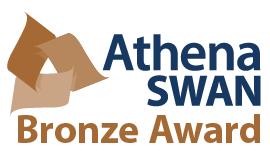Smith-Knight & Rayleigh-Knight Prizes 2024
One or more Smith-Knight Prizes, and one or more Rayleigh-Knight Prizes for essays on any subject in Mathematics and its applications, are offered for competition in 2024.
The Prizes are open to any postgraduate registered student at the University who, at the latest date for the submission of essays, has completed at least three but not more than five terms of postgraduate research as determined by the Degree Committee. In 2024, essays must be submitted no later than the first full day of Lent Term, i.e. Tuesday 16 January 2024, and will be accepted from:
- Students on 3 year PhD programmes (e.g. Ai4ER PhD, DAMTP PhD, DPMMS PhD) who have completed 3, 4 or 5 terms of full-time study at the submission deadline [to account for students starting in October, January or April respectively]
- Students on 4 year PhD programmes (e.g. CMI) who have completed either 4 terms of full-time study, or 7 terms of full-time study at the submission deadline [to account for CMI students undertaking a structured first year of study].
Part time students should contact phd-admin@maths.cam.ac.uk for individual guidance. Students are permitted to only submit for the prizes once.
Essays should be submitted in pdf. format via Moodle by the deadline. Students will need to self-enrol to the Moodle course.
The purpose of the Prize competition is to encourage beginning researchers in mathematics in their conduct and write-up of new and original work. The essay must include an abstract of no more than 300 words, and within the abstract and introductory text there should be a description of the content of the essay in nontechnical terms. In these parts, the essay will differ from a typical journal paper by being informative and attractive to mathematicians who are not themselves specialists in the essay's field. Candidates who are Postgraduate Students should include an introductory page, giving the name of the supervisor and stating in detail which parts of the essay contain review material and which parts constitute original research, as well as stating explicitly the extent to which different parts of the work have been done either solely or in collaboration. This statement should be endorsed by the supervisor.
All submissions will be assessed by a panel of eight Professors from the Faculty of Mathematics, and will be graded according to the following criteria:
Grade 1 indicates an outstanding essay that contains striking research results that are sufficient for one or more high quality publications or a Ph.D. thesis and which represent a significant contribution to the underlying subject area.
Grade 2 indicates a very good essay that contains original results that are sufficient for a publication of high quality. In exceptional circumstances, which should be described in the report, this grade can be given for outstanding but not yet completed research that should eventually lead to significant published work.
Grade 3 indicates an essay that contains original research results that are publishable in a journal of good quality. It should constitute substantial progress toward a good Ph.D. thesis. In exceptional circumstances this grade can be given for an outstanding critical review.
Grade 4 indicates an essay that contains some originality, shows a good grasp of the subject and is likely to lead to publishable results. Alternatively, this grade can be given for a high quality review.
Grade 5 indicates an essay that shows some successful progress in research or which contains useful review material.
The announcement of the award and their cash prize will be made before the end of the Easter Term 2024.
Enquiries may be directed to phd-admin@maths.cam.ac.uk

